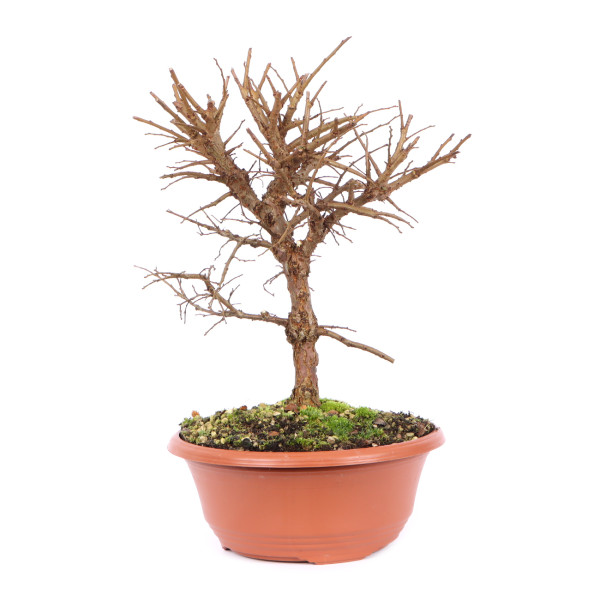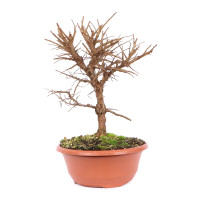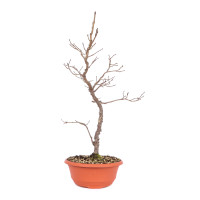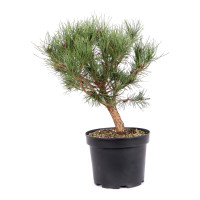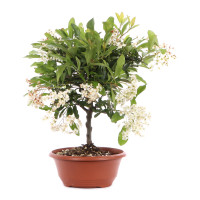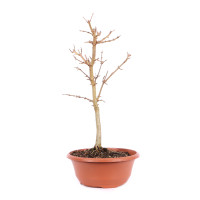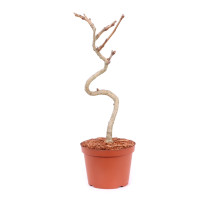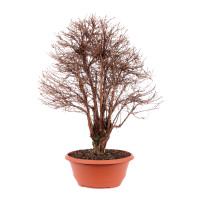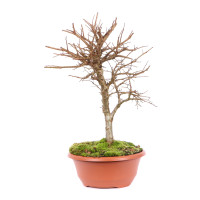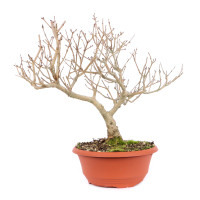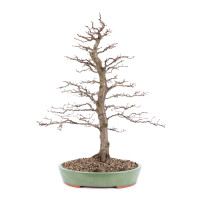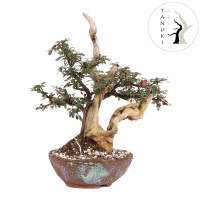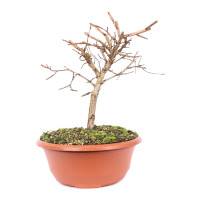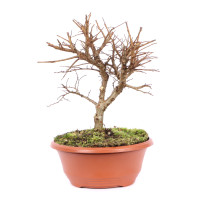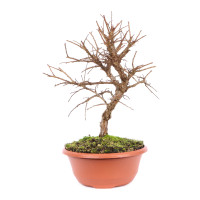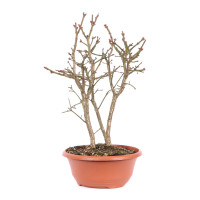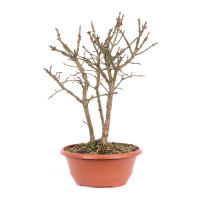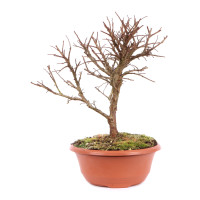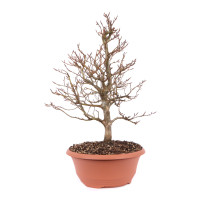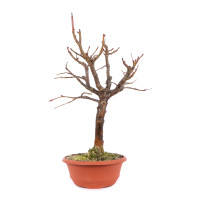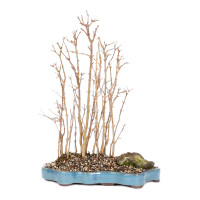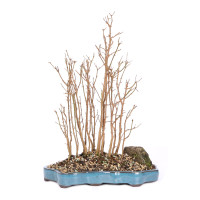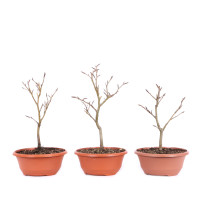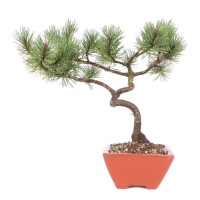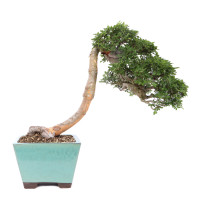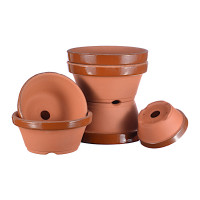- Order number: 1046-P-25-0141
- Height: 30 cm (incl. pot)
- Foliage: deciduous
- Bonsai Pot: plastic pot
- Year: 2021
- Characteristics: attractive autumn colour
- Origin: Germany
Ulmus japonica - Japanese Elm
General:
This plant is probably a variety of the Chinese elm (Ulmus parvifolia). In our company, however, it has been produced as a Japanese elm for many years, as it differs significantly from the houseplant in various properties. It is extremely hardy, and the leaves are not evergreen, but even turn bright yellow in autumn and then fall off completely. In addition, this plant forms an extreme cork bark and has knotty thickenings on the shoots. The leaf is confusingly similar to the Chinese elm.
Care as a bonsai:
The Japanese elm is simply ideal for bonsai design. Due to their fine branches and their small leaves, very authentic looking miniature trees can be raised. It is also often recommended for beginners, as it is very easy to cut and robust. Short-term care errors are tolerated and the shape can be maintained by simply cutting back the annual shoots. The branches can also be wired very well and many design forms are possible. Repotting does not cause any problems thanks to their good root growth. Japanese elms are very hardy and protection from drying winds is sufficient.

